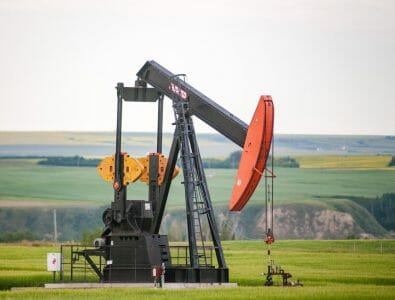Even though oil field mishaps don’t always make the headlines, they happen frequently. Oil and gas extraction causes severe fatal as well as non-fatal injuries.
It is in your best interest to hire an oilfield injury attorney if you or a loved one has been hurt in an oilfield accident. These accidents are usually serious as oil field extraction sites are hazardous places. While you might be aware of certain legal and medical tips while you are dealing with an injury, still hiring an attorney is the better option. Working with an oilfield injury attorney can give you access to someone who can critically assess your situation and inform you of your rights.
Let’s look at the types of oil field accidents and how an oilfield injury lawyer can help you deal with them.
Types of oil field accidents
Heavy equipment failures
Workers operate hazardous heavy equipment on any drilling site, whether pulling pipe, drilling, mixing mud, or doing several other tasks expected of them. This equipment can malfunction at times, which might result in serious injuries.
Numerous factors can contribute to these failures, including inadequate maintenance, irresponsible safety checks, mechanical breakdowns brought on by overstress, improper training, and others. Failures can occasionally be the consequence of a manufacturing or design flaw.
Well blowouts
The uncontrolled flow of crude oil or natural gas while drilling is known as a blowout. Usually, these occur when well-pressure control methods have failed.
During a blowout, an unexpected spark or interaction with an ignition source can cause a fire.
Truck and vehicle accidents
Truck and car accidents at or close to work sites frequently result in injuries to oil and gas personnel. Oil and gas employees often sustain injuries as a result of collisions with other work site vehicles, single-car overturns, and collisions with immovable objects like heavy machinery. Vehicle accidents can be caused by various things, such as bad driving conditions, driver weariness, drug and alcohol usage, and poorly maintained automobiles.
Accidents occurring due to trucks, cars, or other vehicles at an oil or gas extraction site raise many complex legal issues. Determining who caused the accident as well as whose insurance company should be liable for paying for any injuries sustained as a result of the accident can be challenging. This is where an attorney can help you. They can correctly assess the situation and help you get your deserved compensation.
Fire and explosion injuries
Explosions and fires are possible due to the tremendous heat and volatile chemicals utilized in the oil industry. Many oil field workers have lost their lives as a result of these terrible tragedies. Head injuries, burns, and nerve damage are among the problems that oil workers who survive fires and explosions may sustain. Although oil fires and explosions are frequently covered in the media, the industry has not raised safety regulations to stop these tragic catastrophes.
Electrocution
The electricity needed to run oil equipment puts oilfield employees at risk. Additionally, employees are susceptible to lightning strikes since they are surrounded by tall metal machinery. Worker injuries from electrocution include shock, burns, and unconsciousness. Due to the remoteness of oil fields, an oil worker who experiences an electric shock might not receive a fast emergency response. This is what makes several electrical accidents fatal.
How an oilfield injury lawyer can help you
Working with an oilfield injury attorney gives you access to someone who can and will evaluate your situation critically and inform you of your rights. An attorney can help you file a compensation claim, and if successful, you could get income and medical benefits.
Additionally, a lawyer could evaluate your case and determine if you are permitted to make a personal injury claim against a third party.
Conclusion
You or your loved ones might be eligible to make a claim for compensation if you or a loved one was injured in an oil field accident. It’s essential to consult with a knowledgeable oilfield injury attorney as soon as you can to preserve your ability to pursue just compensation.
